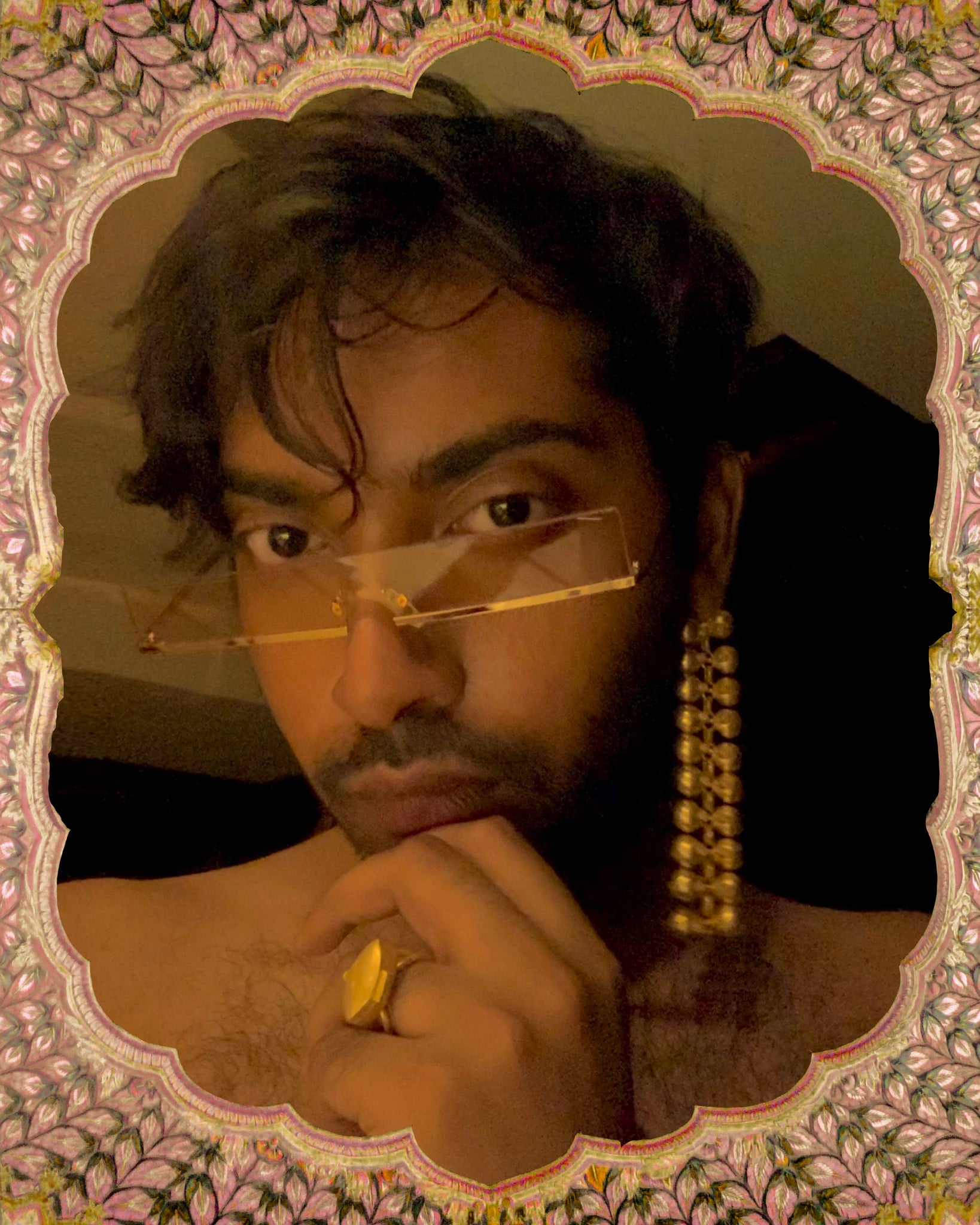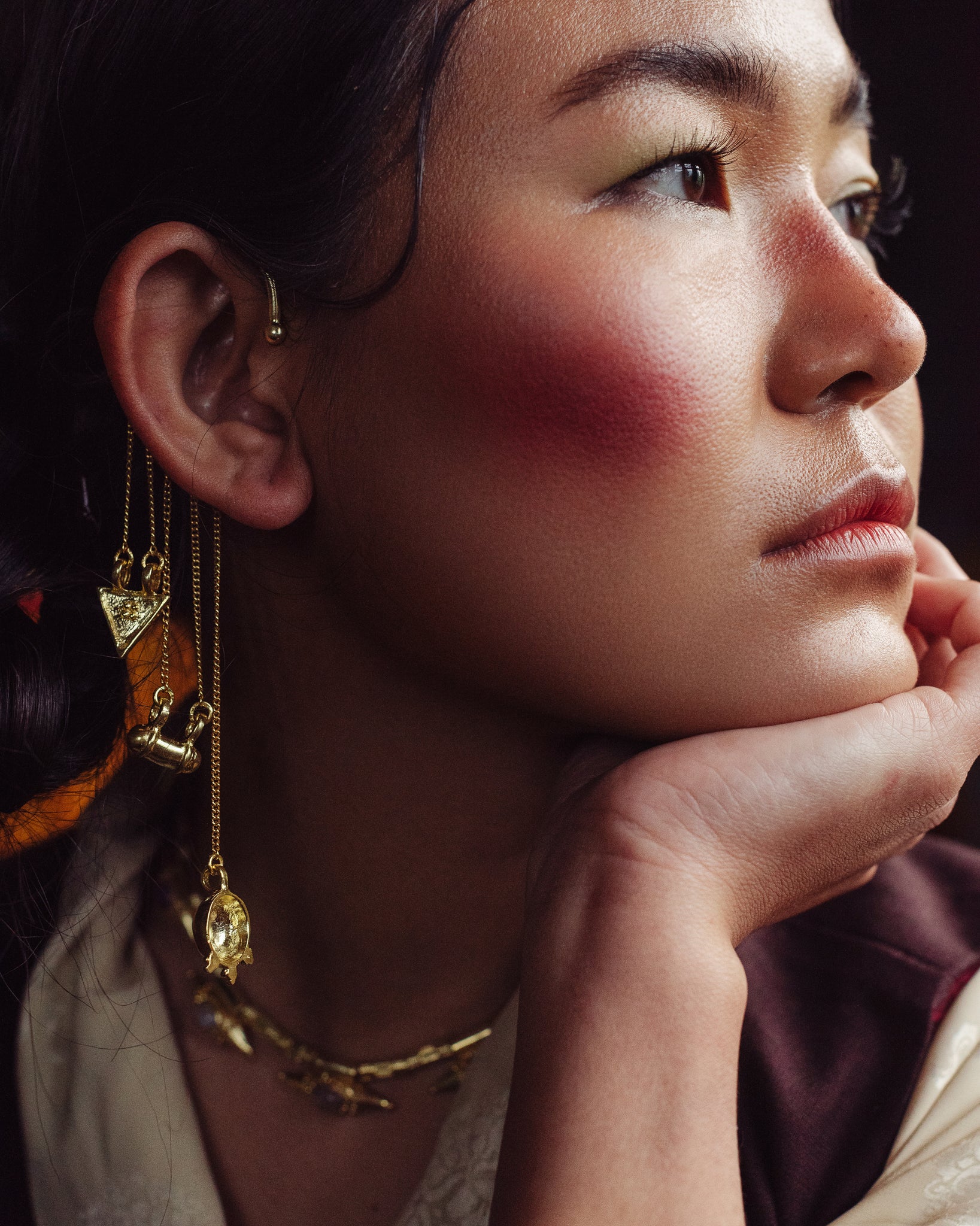

Tell us a little about yourself.
I'm a Bengali American and software engineer. Pre-Covid I used to love getting lost in a new country every other week.
Where did you grow up?
Chittagong, Bangladesh and NYC.
Where do you live now?
I just moved back to NYC from San Francisco.
Where do you look for inspiration?
My own memories and the stories of people around me. I'm always in awe of the strength that some of my closet friends and family have. That in itself is inspiring enough but I also love capturing memories. I love to recreate the feeling of a place I've visited or a moment that seemed like it would never happen again.
What or who is inspiring you these days?
Old photographs of the Bangladeshi countryside from the 80s to the 90s. They can be haunting. I particularly love the solemn photos of pukurs (ponds). Something about the still waters and lonely greenery reminds me of the journey I've been on for the past year in healing ancestral trauma.

I think it's different for each hijabi. If you were to ask the older Muslim generation they might label hijabis as representatives of Islam. But in the digital age it's too polarizing and burdensome to bear the weight of the actions of the entire Ummah. So for me, being a hijabi means choosing to embrace modesty and my religious identity. It means carrying on a set of values no matter the situation.
What's a major misconception people have about hijabi women?
That we are oppressed. If you choose to wear the hijab of your own free will it can be liberating, "Nudity empowers some, while modesty empowers others".
Aside from casual racism and Islamophobia, hijabis tend to face a lot of judgement. Even the most liberal or open minded people pass judgement on my choice of modesty. People make up their mind about you before giving you a chance. Other Muslims judge you because you are not Muslim enough. Non-Muslims judge you because they think you are oppressed or that you are an oppressor.

I don't think many of us realize just how much we internalize the media that we consume. You are what you think and your thoughts can be influenced by any outside source. That's why I love social media, you have the power to choose what kind of content you're consuming instead of being forced to accept whatever is mainstream.
I didn't believe in the phrase "representation matters" until I made the conscious decision to unfollow many popular influencers and instead follow body affirming activists and models. My confidence and my relationship with my body changed completely over time.
The same thing happened in college. Tech is extremely gender disproportionate. I was 1 of maybe 18 women graduating with a tech degree from a major city university. We were all each other's cheerleaders and without them I probably wouldn't have continued on in tech. Representation empowers because not everyone has the strength to continue on alone. It's invigorating to see someone who looks like you succeed and know that you can do that too.

That's why a few images have black and white cutouts of my mother when she was my age. I recognize all that she has done for me and the wisdom that she's imparted but in the end I can only be the summation of my own lived experiences.

What's feminism to you?
It's intersectionality and honoring a woman's right to choose. It's standing in allyship with Trans and ENBY folks. It's mutual aid and self-education.
Early 2000s fashion coming back in style.
Also early 2000s fashion coming back in style because low rise jeans are so uncomfortable and I'm not ready to give up high waisted pants.
After years of working my ass off, I'm starting to feel the affects of burnout. I'm hoping to heal and go back to my creative roots in 2021.



